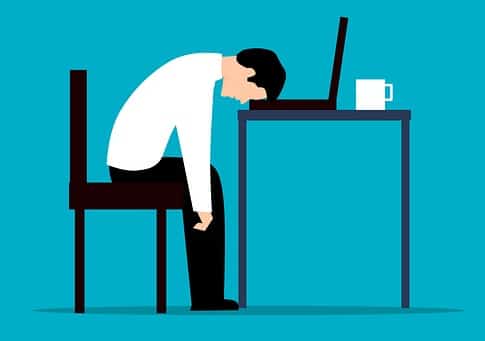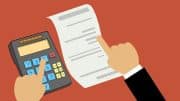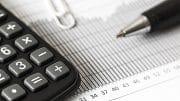More than 475,000 self-employed people are convinced they would miss this week’s self-assessment deadline and paying any money owed, new research has shown.
HMRC data revealed a week earlier that around 3.8 million people were yet to file their returns for the 22/23 tax year. It was expecting 12.1 million to be filed, bust as the deadline approached, only 8.3 million had been received.
The research showed substantial numbers of self-employed workers struggle with completing returns, with around 475,000 admitting they have missed the deadline in the past. Twenty-two per cent say they are worried about the financial consequences of making a mistake when filing, or the financial repercussions of missing the deadline.
Around 10 per cent say completing the is challenging because of their lack of financial knowledge, and eight per cent say completing returns is tough because calculating their income is complex. The group most likely to miss the deadline is men aged 25-34, with 16 per cent saying they are likely to file their return late.
Only around half of self-employed people do it themselves, with 30 per cent being confident about completing their self-assessment form correctly.
The rising number of self-assessment returns reflects changes in the way people are employed, the study by Handelsbanken Wealth & Asset Management also showed.
Most told researchers this was driven by a desire to “follow their passion”. Around a third (33%) cited that as their motivation, compared with 17% who became self-employed to boost their income due to the cost-of-living crisis. And around 15 per cent took the plunge following redundancy. Nearly 12 per cent came out of retirement to become self-employed, as they needed the additional money because of the cost-of-living crisis.
Becoming self-employed also has an impact on people’s contributions to their pensions and saving pots, the study shows. Around one in 10 of the self-employed contribute less to their pension.
Handelsbanken’s Head of Tax Mark Collins, said: “Self-assessment returns are clearly challenging for substantial numbers of the self-employed.
“HMRC says that those with a reasonable excuse for missing the deadline may avoid penalties, but there is the risk of a £100 fine even if there is no tax to pay, and penalties can mount up if returns are more than three months late, with additional penalties for paying outstanding tax late.”
And if you did miss it, what then? The message from Emily Coltman, Chief Accountant at FreeAgent, is there’s no need to panic.
“The first thing to remember is that filing a couple of days late will earn you nothing worse than a £100 fine , although HMRC will also charge you interest if you have failed to pay your tax on time too.
“Don’t get lulled into a false sense of security. Remember that the longer you take to submit your return after the deadline, the more fines you will incur – so that initial £100 penalty may increase. Bear in mind that HMRC may also start to charge additional penalties the longer you wait to pay your tax too, so the quicker you submit your tax return and pay your tax bill, the better.”
She adds: “There may be a very good reason why you haven’t filed on time, such as a serious illness, a family bereavement, a system failure from HMRC, a computer breakdown, or your records being destroyed. HMRC call this a ‘reasonable excuse’ and you should tell them what has happened as soon as possible. Don’t wait until they send you a penalty notice; submit a claim form quickly to let them know.
“If you relied on your accountant, but they failed to prepare and submit on time, you may think that would be a reasonable excuse for missing the deadline. Unfortunately, this is not the case, as HMRC still holds you responsible.”
Related
Making tax digital – a guide
TP experts warn of tax rate instability



